Ever felt extremely emotional or overwhelmed while interacting with your partner? Do you feel distant or exhausted by specific situations and behaviors of loved ones? Trauma triggers in a relationship can severely affect the emotional and mental health of both partners. That’s why it is crucial for you to learn how to deal with trauma triggers in a relationship.
Whether you are dating someone with relationship trauma or you are the one who is dealing with such emotional turmoil, understanding the interplay of trauma and relationships can help you better manage these triggers and build healthier and more positive relationships.
What are Trauma Triggers in a Relationship?
The trauma triggers are the behaviors, events or situations that remind someone about their past traumatic experiences. These triggers can also stimulate intense emotions, negative thought patterns and unexpected physical reactions linked with original trauma.
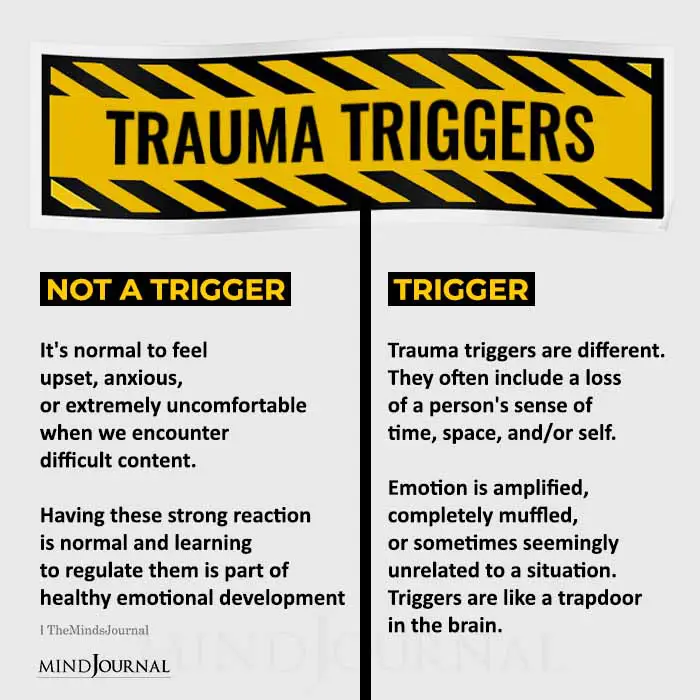
In the context of a relationship, trauma triggers can develop from past experiences of abandonment, rejection, abuse, neglect, loss, or other forms of traumatic events. For instance, when someone’s partner goes for a strictly official business trip, it could cause feelings of abandonment or insecurity in the other partner, leading to anxiety and fear.
Related: Why Certain People Act As A Trauma Trigger For Empaths
Unresolved traumas can strain relationships if there is a lack of open communication and empathy. Hence, there is a strong need for empathy, understanding and support to promote healing and building stronger bonds.
Sarah’s Story
Sarah, a survivor of childhood abuse, gets into a relationship with Alex who does not know about her painful past. When Alex starts shouting during a normal argument, Sarah becomes scared as it triggers past memories of abuse from her childhood. This makes her emotionally withdrawn leaving Alex confused and frustrated.
In this scenario, Alex’s behavior acts as a traumatic reminder for Sarah as it brings back old unpleasant memories and feelings. As Alex is unable to comprehend the primary reason for Sarah’s behavior, he will likely perceive her withdrawal as a lack of interest or rejection, resulting in further issues in the relationship.
This case study shows the significance of identifying the triggers and learning how to deal with trauma triggers in a relationship. It provides an opportunity for open communication and empathy to gain deeper insights into each other’s lives.
How Trauma and Relationships are Linked
Trauma can seriously affect the way we engage in relationships in a negative manner. It can lead to emotional wounds that impair our ability to trust, be vulnerable and to build healthy and secure attachments.
When an individual enters a relationship, their past traumatic experiences can affect their emotional responses, behavior, actions and communication patterns. Realizing how trauma and relationships are connected can help us be more empathetic and create
Understanding this link is crucial for fostering empathy and creating a safe and supportive environment for ourselves and our partners.
Signs You Are Dating Someone with Relationship Trauma
Here are some of the most common signs that an individual is dating someone with relationship trauma –
1. Hypervigilance And Emotional Withdrawal
Those suffering from relationship trauma tend to be highly alert and observant about possible threats. Hence, they always shut down emotionally during conflicts or intimate moments.
2. Intense Emotional Reactions
The person may exhibit strong emotional reactions, like anger, fear, or sadness. Such reactions often seem disproportionate to the situation at hand.
3. Avoidance of Triggers
Your partner may tend to avoid certain people, situations, topics, or places actively as it may remind them of their past trauma. They may engage in avoidance behaviors even if it limits their experiences or interactions.
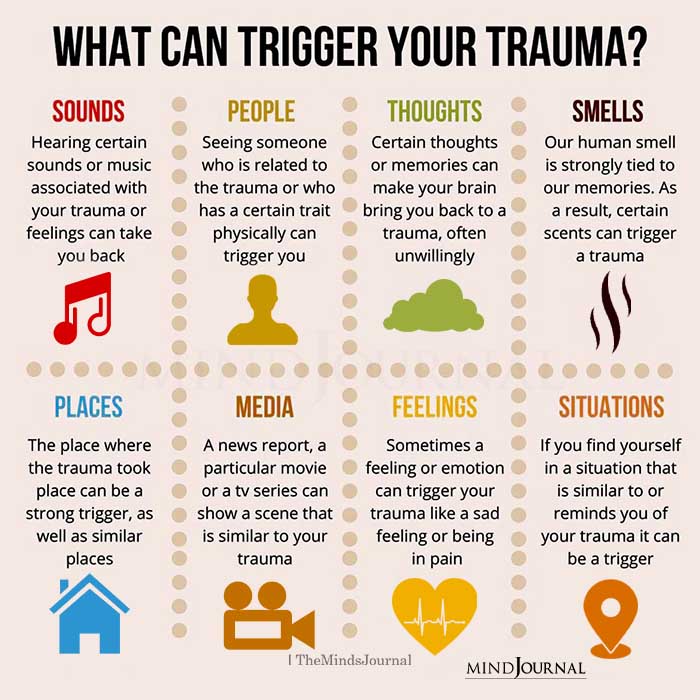
4. Difficulty Trusting and Opening Up
It is not easy for someone who experienced relationship trauma to confide in others. They will be unwilling to share their thoughts, emotions or insecurities as they are afraid of rejection or criticism.
5. Emotional Triggers
These individuals often react strongly to particular words, tones of voice, gestures or physical contact due to their past traumatic experiences. Learning to recognize and understand these triggers is vital for building a healthy relationship.
Related: 7 Surprising Triggers For Empaths: Identifying And Coping Strategies For Emotional Harmony
How to Deal with Trauma Triggers in a Relationship
Wondering how to deal with trauma triggers in a relationship? If you are dating someone with relationship trauma, then gaining an understanding of the association between trauma and relationships can help you develop strategies to overcome this issue.
Here are a few beneficial tips that can help you build a healthier and happier relationship –
1. Open Communication
It is necessary to have open non-judgmental communication. Encourage your partner to openly and honestly share their feelings and worries, and actively listen to them without judging, interrupting or trying to solve their problem.
2. Educate Yourself about Trauma
Invest some time on learning about trauma and how it affects individuals and relationships. This can boost your empathy as knowing the effects of trauma can help you understand how to be more supportive.
3. Identify Triggers Together
Work together to identify the triggers that evoke strong emotional responses in your partner. This process involves patience, compassion, and active listening. It’s important to remember that triggers can be unique to each person.
4. Create a Safe Environment
Build a safe and supportive environment that makes your partner feel comfortable and encourages them to express their emotions and thoughts. Assure them that their emotions are valid and just be there to offer them the support they need.
5. Set Boundaries
Establish clear boundaries that respect both your and your partner’s needs and triggers. This can involve avoiding people, places, topics and situations that lead to emotional distress. Openly discuss these boundaries and make adjustments as needed.
6. Seek Professional Help
Trauma can be complex, and seeking professional help from a therapist or counselor specialized in trauma can provide necessary guidance and support for both partners.
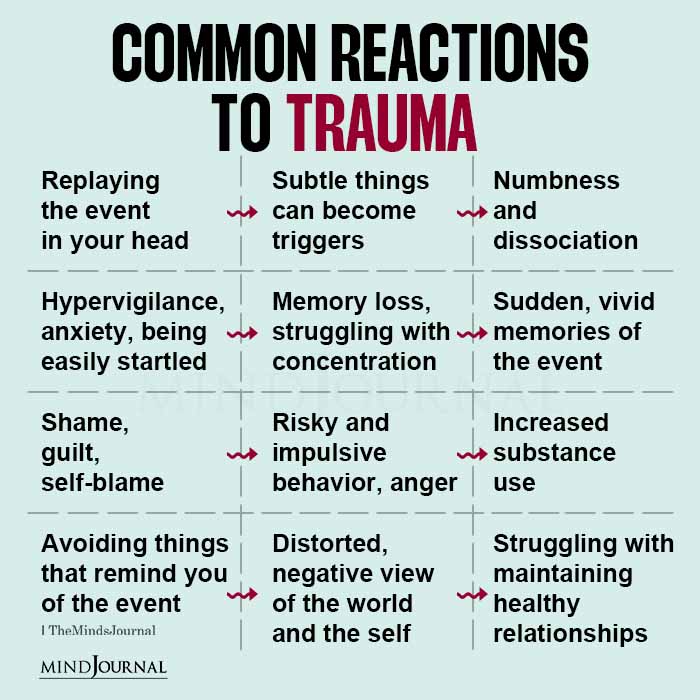
Takeaway
A compassionate and supportive approach is required when navigating trauma triggers in a relationship. You can establish a safe and healing space for both partners by understanding what trauma triggers are, recognizing signs of relationship trauma, and learning how to deal with trauma triggers in a relationship.
Always remember that healing from trauma requires love, compassion, patience, and commitment. It is only through open communication, empathy, and professional support that you will be able to deal with these challenges and build a lasting, loving relationship.
Related: How Can Empaths Protect Themselves From Trauma Trigger People?
Frequently Asked Questions (FAQs):
How do I stop past trauma ruining my relationship?
You can overcome past trauma by seeking therapy, engaging in open communication, practicing empathy, and by being mutually supportive.
How do you respond to your partner’s trauma trigger reactions?
You can respond with patience, empathy, active listening, and validation to support your partner through their reactions.
Can a relationship survive trauma?
Yes, you may be able to deal with relationship trauma with understanding, communication, and professional help.
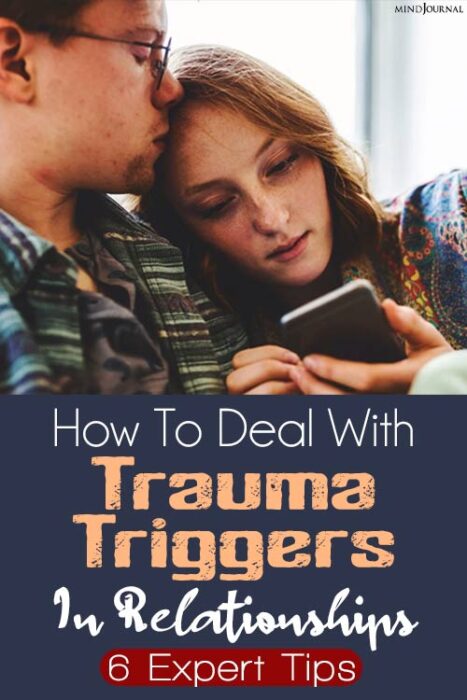
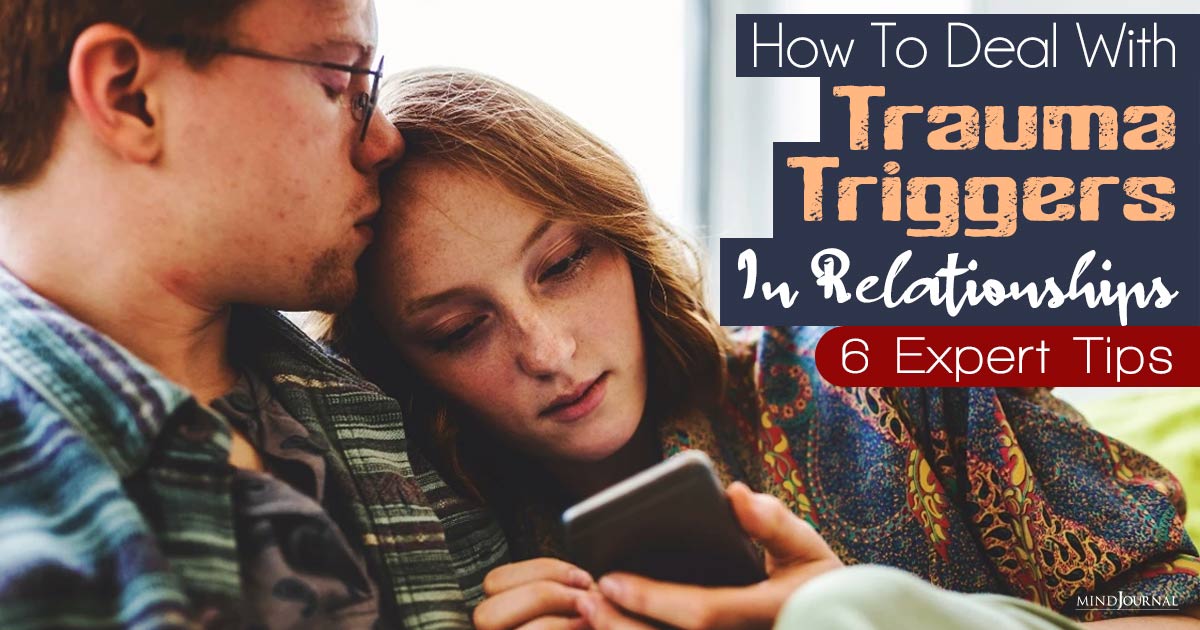





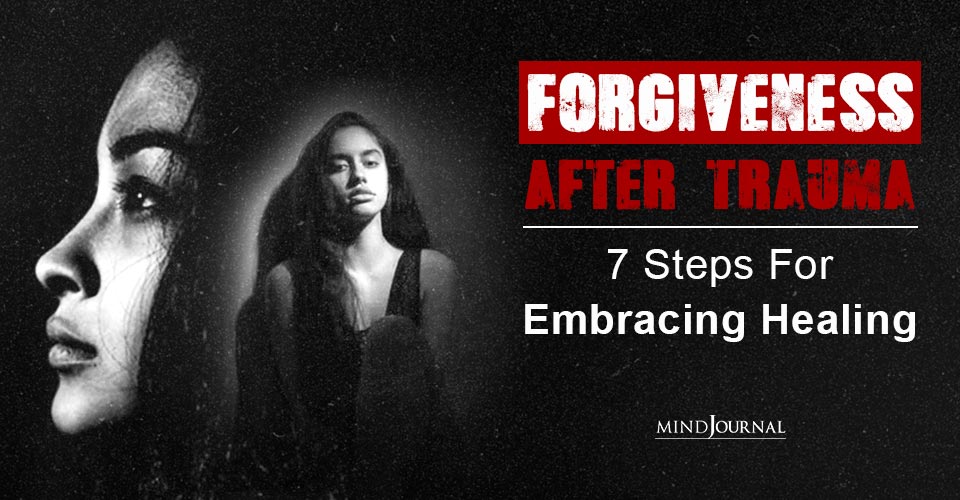

Leave a Reply
You must be logged in to post a comment.